EcoFoodSystems project partners with Ethiopian Public Health Institute on healthy, sustainable and affordable diets in Addis Ababa city region
EcoFoodSystems hosts multistakeholder workshop in Addis Ababa, Ethiopia on March 18th. Over 100 attendees met to discuss research priorities and tools for decision-making needed for food system transformation in Addis Ababa.
Ciara Varley, Charlie Spillane

On 18th March 2025, the University of Galway EcoFoodSystems team partnered with the Ethiopian Public Health Institute (EPHI) to jointly run an EcoFoodSystems multistakeholder workshop in Addis Ababa, which brought together over 100 stakeholders from across the Ethiopian and Addis Ababa food system. The participants spanned government ministries, departments, agencies, NGOs, private sector, cooperatives, unions, youth and women’s groups, UN agencies and civil society organisations. The goal of the EcoFoodSystems workshop was to enable the Ethiopian food systems stakeholders to identify and prioritise what knowledge, evidence, data and decision-support tools are most necessary for transitions of the diets of marginalised consumers in Addis Ababa city region towards diets that are more sustainable, healthy and affordable.
By 2050, more than 70% of the world population will be living in urban areas, the majority living in city regions. The consumption footprint of city regions results in cities being responsible for almost 70% of greenhouse gas emissions. In parallel with the climate mitigation and adaptation challenges facing cities, urban citizens are also facing a rapidly growing dual burden of malnutrition. The dual burden of malnutrition refers to both undernutrition and overnutrition (leading to overweight and obesity) which can occur across households, communities, regions and nations.
The three million euro EcoFoodSystems project led by the University of Galway, with partners Wageningen University and Research (WUR) and Rikolto, focuses on research and innovation activities to enable transitions towards diets that are more healthy, sustainable and affordable in city regions, particularly for citizens who are most nutritionally marginalised. The project, which is funded by the European Union and managed by the International Fund for Agricultural Development (IFAD), has activities that are aligned with Ethiopia’s national food system and nutrition policies, including Ethiopia’s National Food and Nutrition Strategy.
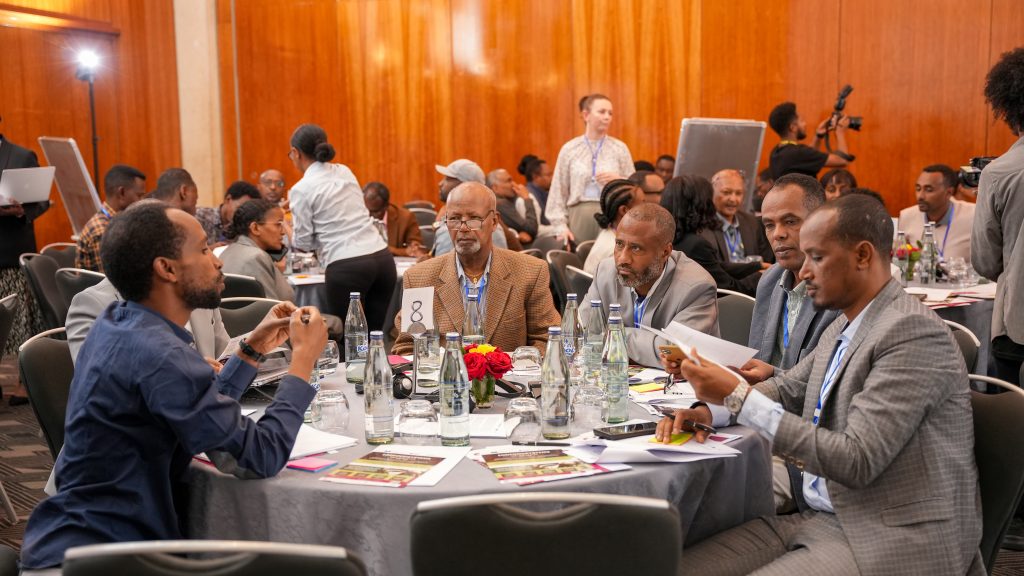
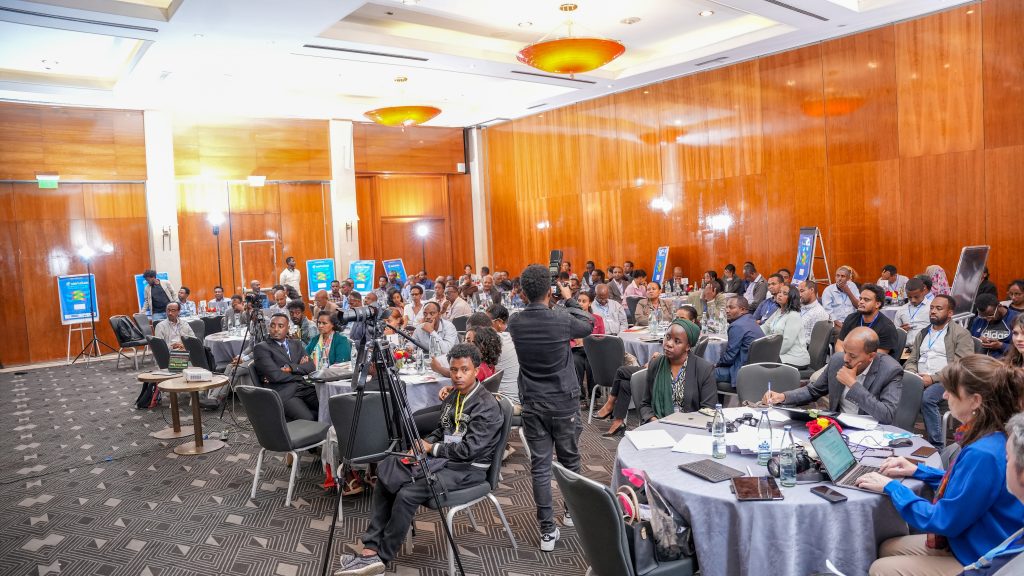
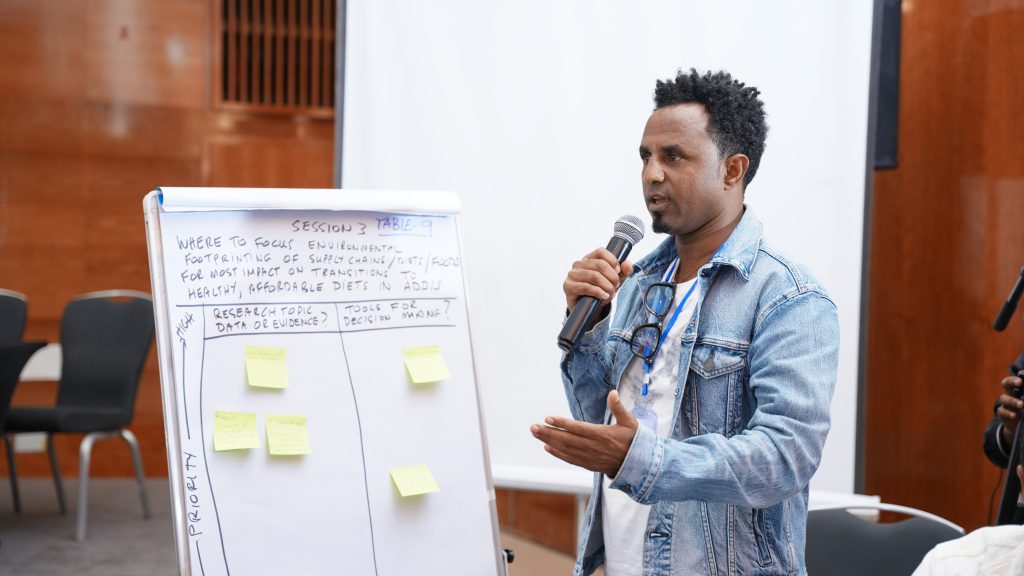
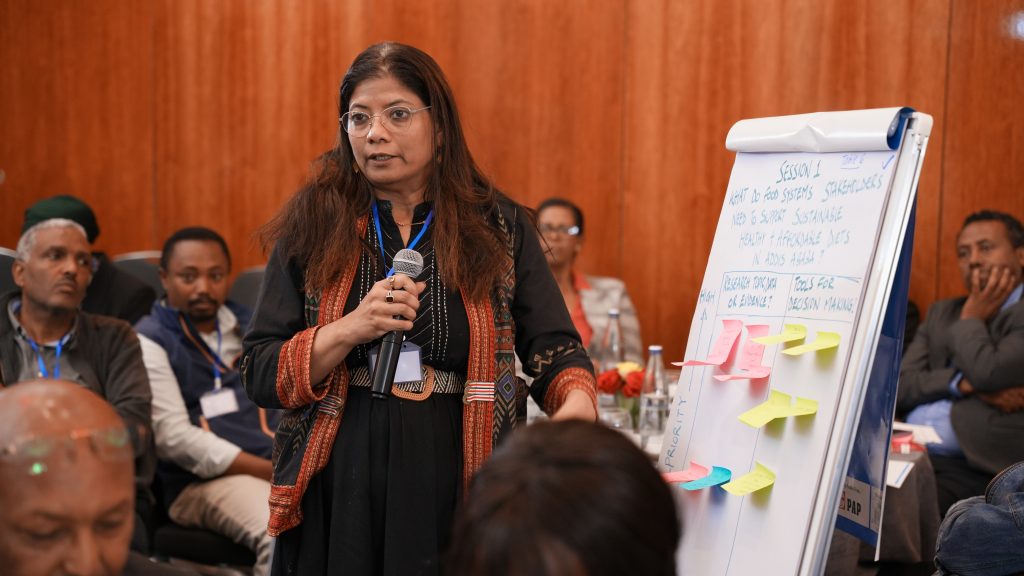
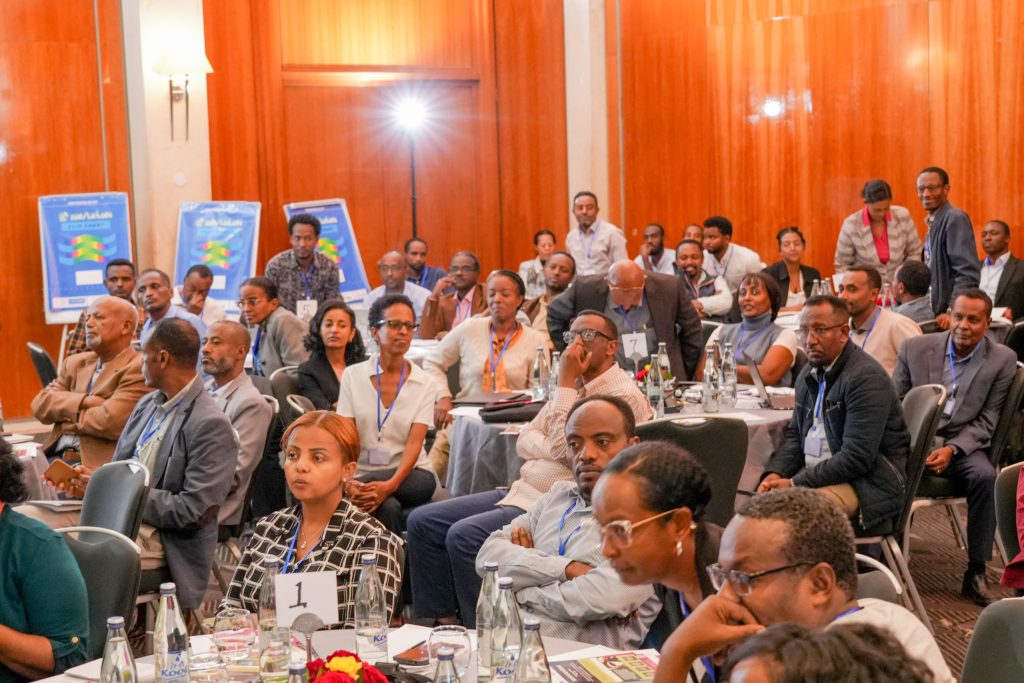
The workshop was opened by Mr. Yonatan Mamo, Nutrition Coordination Specialist, from the Ministry of Health, Ethiopia:
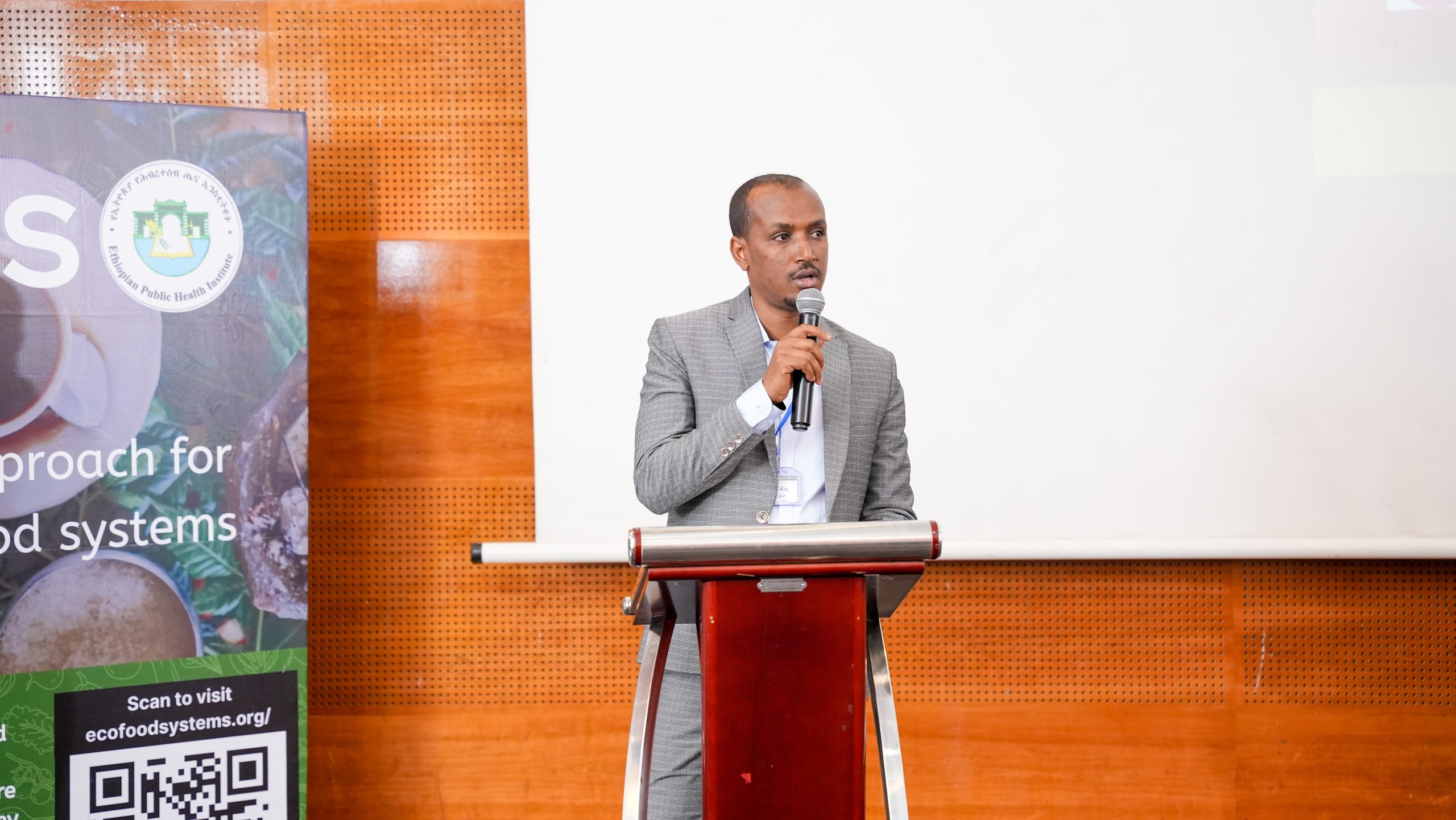
Addressing food security, malnutrition and climate resilience, requires a collaborative, cross-sectoral effort.”
The EcoFoodSystems Project Leader, Prof Charles Spillane (University of Galway) highlighted the urgency of enabling transitions to diets that are more healthy, sustainable and affordable for all city regions, including Addis Ababa. He further indicated that a key goal of the Addis Ababa EcoFoodSystems workshop was to enable stakeholders across ministries, sectors and disciplines to work together to identify priority research topics and decision-support tools for the Addis Ababa city region that are needed to enable transitions towards more health, sustainable and affordable diets for all.
At the workshop, Dr. Endale Amare, Head of Nutrition and Food Science Research Division at the Ethiopian Public Health Institute stressed the importance of multistakeholder workshops, such as the EcoFoodSystems workshop, for building consensus and shaping future directions of food systems transformation in Ethiopia.
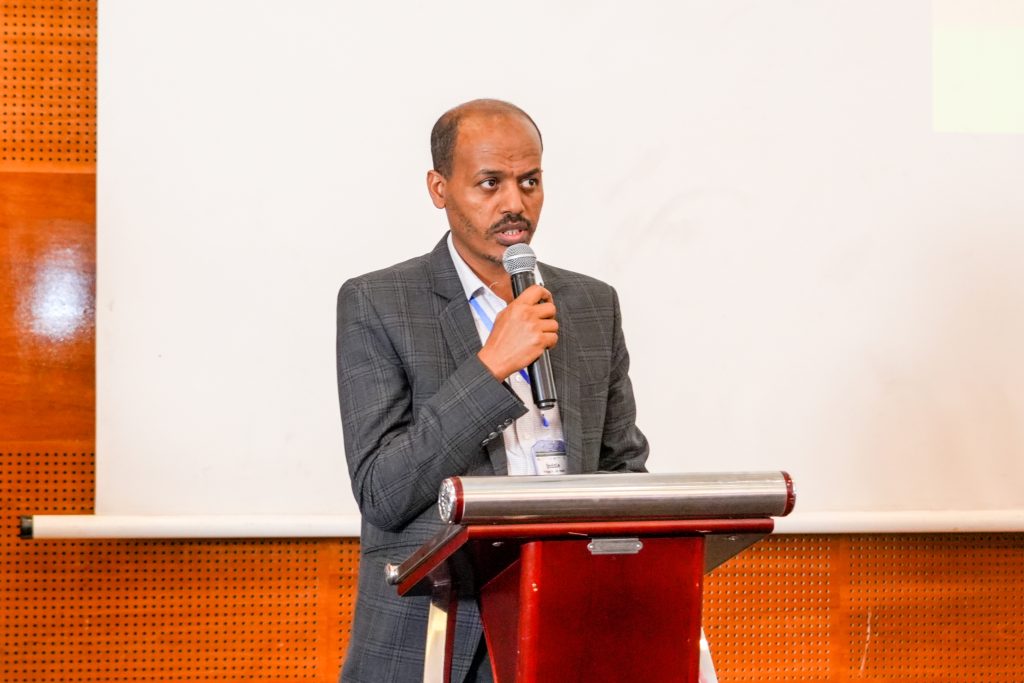
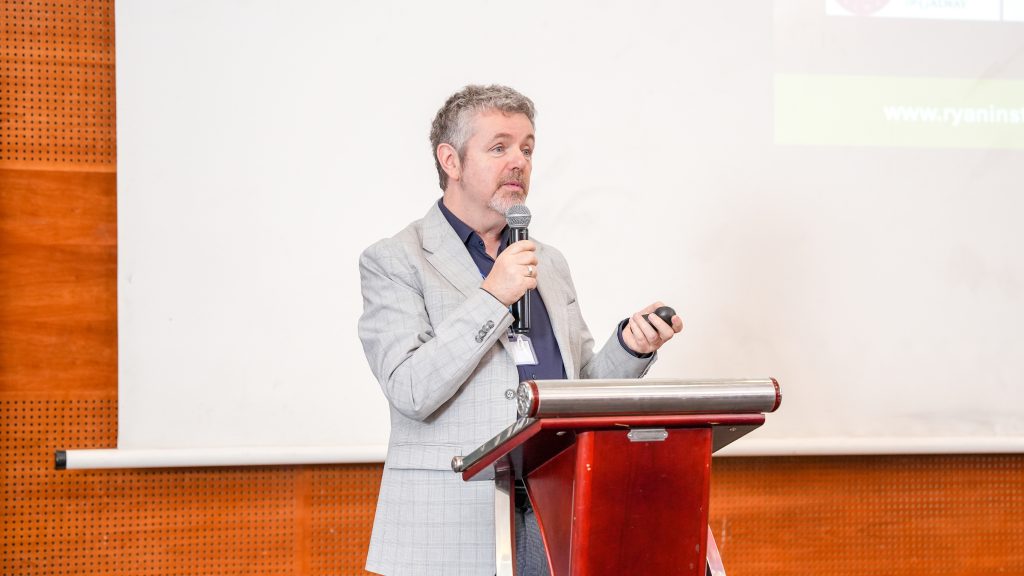
The findings from the workshop will be compiled into a report and released in open access by the EcoFoodSystems project. The EcoFoodSystems project look forward to releasing the findings from the report in the coming months.
To learn more about the workshop, you can read further coverage in Capital News, Ethiopian Today, Ethiopian Business Review, Ethio Negari, The Herald, Sheger 102.1 FM, The Reporter Amharic, Getu Temesgen and Fidel post.